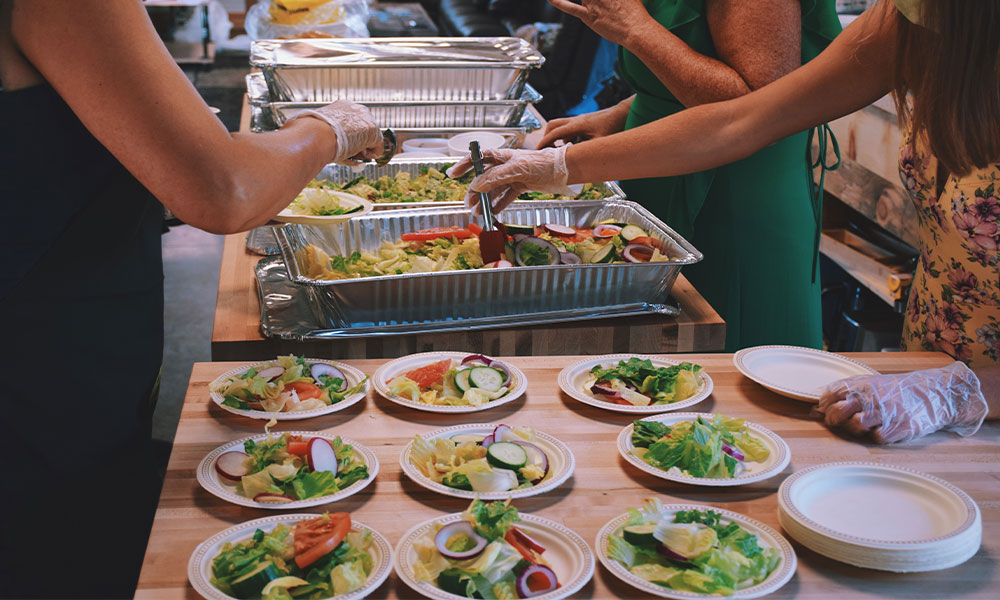The Unseen Impact of Food Coalitions

In today’s rapidly changing world, the concept of community has taken on new importance. With the growing divide between the haves and the have-nots, one of the most critical issues facing communities in the United States is food insecurity. Food coalitions, community-driven organizations aimed at addressing this issue, play a vital role in not only ensuring food security but also in fostering stronger, more resilient communities. This article explores the unseen impact of food coalitions, highlighting their role in reducing food waste, ensuring food security, and strengthening the social fabric of our communities.
Understanding Food Coalitions
Food coalitions are collaborative networks comprising local farmers, food banks, community kitchens, nonprofits, and volunteers, all working together to combat food insecurity. Their mission is to ensure that every member of the community has access to sufficient, nutritious food. These coalitions operate on principles of sustainability, equity, and community engagement, aiming to create a food system that benefits everyone.
Reducing Food Waste
One of the primary objectives of food coalitions is to reduce food waste. In the United States alone, it is estimated that 30-40% of the food supply is wasted annually, equating to approximately 133 billion pounds and $161 billion worth of food. This waste occurs at various stages of the food supply chain, from farms and manufacturers to retailers and consumers.
Food coalitions address this issue by:
- Redistributing Surplus Food: Partnering with grocery stores, restaurants, and farmers to redirect surplus food that would otherwise go to waste. This food is then distributed to those in need through food banks, pantries, and community kitchens.
- Educating the Public: Raising awareness about the impacts of food waste and providing practical tips on how to reduce waste at home. This includes education on meal planning, proper food storage, and creative ways to use leftovers.
- Supporting Local Farmers: By purchasing imperfect or excess produce from local farmers, food coalitions help reduce farm-level waste. This not only provides a market for farmers’ products but also ensures that more food reaches those who need it.

Ensuring Food Security
Food security, defined as having consistent access to sufficient, safe, and nutritious food, is a fundamental human right. Food coalitions play a crucial role in ensuring food security through various initiatives:
- Food Pantries and Banks: Establishing and maintaining food pantries and banks that provide free meals to individuals and families in need. These services are often tailored to meet the specific dietary needs of different populations, including those with health conditions or cultural preferences.
- Community Kitchens: Operating community kitchens where people can enjoy nutritious meals in a dignified setting. These kitchens also serve as hubs for social interaction and community building, helping to combat social isolation.
- Emergency Food Programs: Implementing programs to provide immediate assistance during crises, such as natural disasters or economic downturns. These programs ensure that vulnerable populations have access to food during times of heightened need.
- Nutrition Education: Offering workshops and resources on nutrition, cooking, and budgeting to help individuals make the most of the food they receive. This empowers people to make healthier choices and maximize the benefits of their food resources.
Strengthening Community Bonds
Beyond addressing food insecurity, food coalitions foster stronger community bonds and promote social cohesion. They achieve this by:
- Volunteer Opportunities: Engaging community members as volunteers, which fosters a sense of purpose and belonging. Volunteers play a crucial role in the operations of food coalitions, from sorting and distributing food to organizing events and fundraising.
- Collaborative Efforts: Bringing together diverse groups, including businesses, schools, religious organizations, and local government agencies, to work towards a common goal. This collaborative approach helps build trust and cooperation among different sectors of the community.
- Community Events: Hosting events such as community dinners, food festivals, and educational workshops that bring people together. These events create opportunities for social interaction, cultural exchange, and the celebration of local food traditions.
- Advocacy and Policy Work: Advocating for policies that support food security and reduce food waste at the local, state, and national levels. By participating in policy discussions and campaigns, food coalitions amplify the voices of those affected by food insecurity and work towards systemic change.

The Ripple Effect of Food Coalitions
The impact of food coalitions extends far beyond the immediate benefits of food distribution. Their efforts create a ripple effect that enhances the overall well-being of the community. Some of these broader impacts include:
- Improved Health Outcomes: Access to nutritious food leads to better health outcomes, reducing the prevalence of diet-related diseases such as obesity, diabetes, and heart disease. Healthier individuals contribute to a more productive and vibrant community.
- Economic Benefits: By reducing food waste and supporting local farmers, food coalitions contribute to the local economy. Additionally, they help reduce the economic burden on healthcare systems by improving public health.
- Environmental Sustainability: Reducing food waste minimizes the environmental impact associated with food production and disposal. This includes lowering greenhouse gas emissions, conserving water and energy, and reducing the strain on landfills.
- Social Equity: Food coalitions work towards social equity by ensuring that all community members, regardless of their socio-economic status, have access to nutritious food. This helps bridge the gap between different social groups and promotes a more inclusive society.
Conclusion
Food coalitions are unsung heroes in the fight against food insecurity and waste. Their comprehensive approach to food distribution, education, and community engagement not only addresses immediate needs but also fosters long-term resilience and social cohesion. By supporting and participating in local food coalitions, we can all contribute to building stronger, healthier, and more sustainable communities. The unseen impact of these organizations is profound, demonstrating that when we come together to tackle complex issues, we can create a better future for everyone.
Please consider donating your Car, Truck, SUV, Van, RV, or Boat to one of our Charities.
NOTE: Our Blogs have been fact-checked; however, we cannot guarantee 100% accuracy. If you find any incorrect information, please let us know in the comments and we will remove or edit inaccurate content. Thank you!




